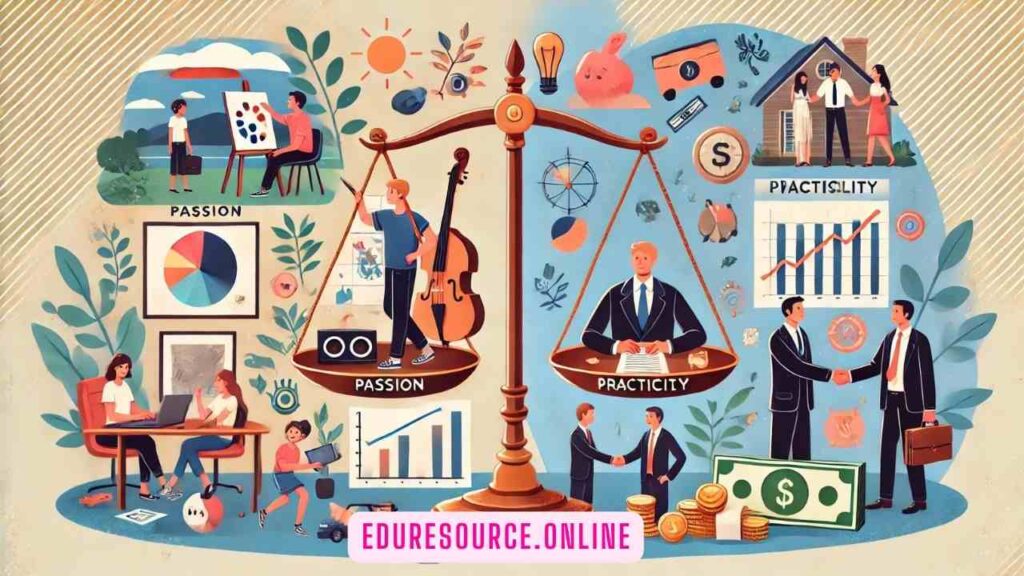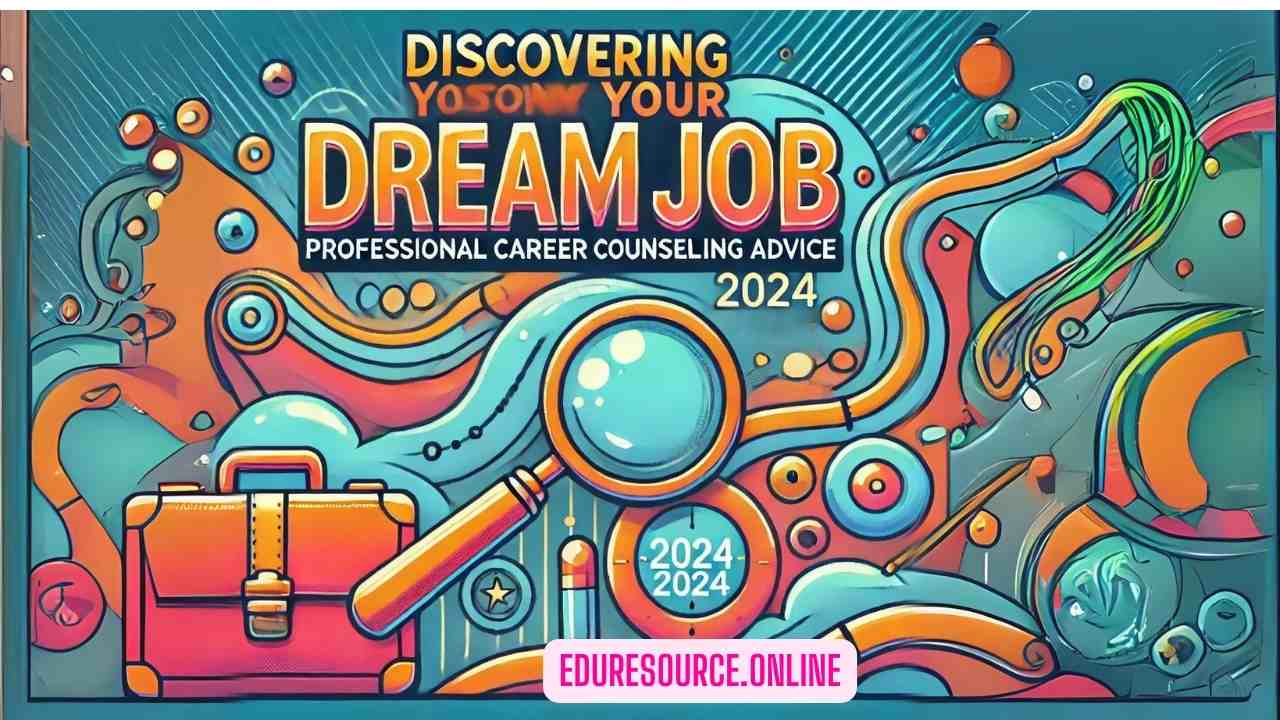The job market today is fast-paced and ever-changing, making it seem nearly impossible to find your dream job. Often filled with confusion, worry, and a multitude of decisions.
That can be too much to handle; just picture waking up every day thrilled to go to work because you know that you are appreciated in this role which aligns perfectly with all of your skills, passions, and values.
But this fantasy can come true if approached correctly.
In this article, we shall reveal some expert tips on career counseling to aid you realize what your dream job is and also help navigate toward professional happiness.
Understanding Yourself: The Foundation Of Your Career Journey
The first step towards finding the perfect career path for yourself lies in self-assessment i.e. understanding who exactly it is that you are as an individual.
This includes taking into consideration such aspects as interests; values; strengths or weaknesses among others alike them. It’s about figuring out what makes one tick and thrive within different work environments.
Self-Assessment Tools
There are many self-assessment tools available that can provide insights into someone’s personality type as well as their preferred careers.
These instruments may include the Myers-Briggs Type Indicator (MBTI); Strengths Finder; and Holland Code (RIASEC) among others all these have proven very helpful over time since they enable individuals to identify their inherent abilities and then match them against possible professions.
Reflect On Your Experiences
Take some minutes off from your busy schedule and just reflect back on those tasks or jobs that brought satisfaction into life while ignoring everything else for now. What were the projects? why did I enjoy doing them? when was I most happy working? etc., knowing such things will shed light on real passion areas.
2. Setting Clear Career Goals
After gaining enough knowledge about oneself next thing should involve setting achievable objectives concerning future employment prospects otherwise known as dreams/goals/desires etc.
Without any direction, it becomes easy to get stuck in an array of opportunities and paths to choose from hence affecting overall productivity.
Short-Term & Long-Term Goals
Divide these goals into short-term (1 year) and long-term (5 years) objectives so that one can monitor his/her progress periodically. Short-term goals can be like acquiring certain skills or knowledge necessary for a specific job while long-term ones may revolve around where you see yourself in the next five years.
For instance, being a manager at some organization, etc.
SMART Goals
All dreams should follow SMART criteria: Specific, Measurable, Achievable, Relevant Time-bound.
This means that each goal must target a particular area that can easily be measured thus indicating whether success has been achieved within a given period or not besides being something realistic considering the current situation as well as future expectations.
3. Networking: Your Secret Weapon
Networking happens to be one most powerful tools when it comes to career development.

A lot more vacancies are filled through referrals and connections rather than advertisements on company websites or newspapers therefore you need to learn how to use this strategy effectively if at all you want to succeed in finding your dream job quickly.
Build Genuine Relationships
Begin by creating genuine friendships with professionals within the same industry as yours; attend conferences related to fields join relevant LinkedIn groups participate in local meetups etc.,
remember networking isn’t just about what another person might offer but also involves helping others. Share resources show a willingness to help those who may require such assistance act connector linking different individuals together to achieve common goals.
Informational Interviews
Try interviewing various people occupying similar positions which interest them most probably because they have always thought working under the same conditions would make them happy.
If luck goes your way might even end up securing employment opportunities after conducting a few of these discussions thus don’t hesitate to ask the right questions during such occasions since could prove quite useful in later stages when making decisions about career path selection.
Crafting a Standout Resume and Cover Letter
Tailor Every Single Application
Modify your curriculum vitae and cover letter for every job application. Specify abilities and experiences that match the job description most.
Employ keywords found in the advertisement to help your resume beat Applicant Tracking Systems (ATS).
Display Achievements, Not Just Duties
Highlight achievements instead of duties alone. Give measurable facts showing how you performed. For instance, instead of saying “Managed a team,” say “I managed a group of ten, raising project delivery speeds by twenty percent.”
5. Becoming a Superstar in Interviews
Interviews represent the chance for you to impress and demonstrate that indeed, you are best suited for the role. It is all about preparing adequately and practicing.
Conduct Research About the Company
Before attending an interview, take time to research the company. What does it stand for? What are its values? Get to know its culture as well.
Additionally, stay updated with industry news and trends because sometimes what they want from candidates might change too.
When doing this, not only will your answers be relevant but also show genuine interest in their operations which is likely to impress them even more.
Familiarize Yourself with Common Questions
As part of your preparations familiarize yourself with common questions asked during interviews especially behavioral ones starting with “Tell me about a time when…”
You can choose to use the STAR method when responding; the situation or task, action taken then the result achieved should be indicated using one example from experience.
Lifelong Learning & Skill Improvement
Continuous learning coupled with skill improvement has become indispensable in today’s job market since having many abilities and knowledge makes one attractive among employers who may hire them anytime.
Keep Abreast of Industry Trends
It is important to keep up-to-date with current happenings within your area of specialization by following blogs that matter most to you or listening keenly while podcasts designed for professionals like yourself air across different channels including YouTube among others not forgetting trade journals which may also contain useful information concerning this issue henceforth affecting both parties involved equally if acted upon accordingly; apart from keeping abreast also demonstrates some initiative on part of the potential employer towards future growth prospects thus necessitating recommended actions without any further delay at all levels within an organization where applicable so far until now.
Invest On Self-Development
The need for self-development cannot be underestimated hence investing in courses offered through various platforms such as Coursera, Udemy and LinkedIn Learning among others will go a long way in ensuring that new skills are acquired or old ones further enriched.
Embracing Flexibility & Resilience
One cannot expect a smooth journey towards their dream job as there are bound to be obstacles along the way therefore being flexible and resilient during such times becomes important.
Be Willing To Change
It is wise enough to always remain open-minded so that you can take up different opportunities that may come on your path if necessary this might require shifting careers despite having qualifications already attained for another sector altogether besides realizing certain posts were never meant specifically for us.
But somewhere else instead where they belong according to our abilities thereby making lateral moves between organizations at different levels within the same industry as a whole while considering also that outside scope.
Although closely related initially thought impossible due to reasons best known themselves only time revealed the truth about each case individually when least expected anyway since life is full of surprises all round every corner including job hunting periods hence being prepared always pays off handsomely in the long run without regrets whatsoever regardless of outcome achieved eventually.
Learn From Rejections
Rejection should not discourage somebody because it just forms part of the process thus whenever faced with the same person needs to ask for feedback from those involved either directly or indirectly after which utilized.
The obtained knowledge to improve the next application/interview done by them again later until finally succeed someday somehow somewhere even though were unknown yet still possible so never give up now then anyways forevermore.
Tapping Into Social Media
Social media platforms have gained popularity over the years, especially among job seekers who use sites like Twitter, Instagram, and LinkedIn as powerful tools when looking for employment opportunities or networking with professionals within their industries.
Maximize Your LinkedIn Profile
Ensure that one’s LinkedIn profile remains updated regularly while also keeping relevant information concerning previous working experiences alongside any other achievement attained which might add value to current status since prospective employers always check these things out before making final decisions based on individual qualifications alone without considering other factors equally important during recruitment process itself at that moment.
Additionally, having a professional-looking photo is key so avoid using casual ones instead use the official one taken in an office setup without showing any signs of relaxation lest it undermines credibility among potential employers.
Demonstrate Expertise Through Social Media
Showcasing expertise via social media can be achieved by sharing articles related to your field of study or even writing posts about trends within this area which should then prompt discussion among peers thus positioning oneself as a thought leader who could attract attention from probable bosses eventually.
Finding a Balance Between Passion and Practicality
While chasing after your passions is important, it should also be done with some level of practicality at the back of your mind. The job of your dreams should be based on what you like as much as it should depend on the realities in the field.

Financial Matters
Take financial considerations into account. Ensure that whatever you want to do aligns with your financial objectives and offers stability too. It may even mean starting with something else that acts as a stepping stone towards where one would want to reach eventually in their career.
Work-life Balance
Consider work-life balance implications associated with the desired career path. A job that requires all your time and energy might not be sustainable over long periods so look for roles that enable you to keep this part of life healthy too while working.
Conclusion: The Voyage Towards Landing Your Dream Job
Realizing one’s dream job is a process that demands self-awareness, planning strategically, being ready to learn continuously, and resilience throughout such a journey because it involves finding out how these three elements can converge; what you love doing most, what you are good at doing best and where market gaps seem to exist among other things.
Therefore, if approached right even amid complexities surrounding employment opportunities satisfaction will never be an issue.
Remember that career development is a marathon, not a sprint; hence one needs patience combined with persistence plus always keeping their eyes fixed on winning the prize.
This means staying focused until achievement has been realized which is getting employed in an area or industry they have always wanted to work for since childhood or early adulthood stages. So always know that somewhere out there lies waiting just for them alone
